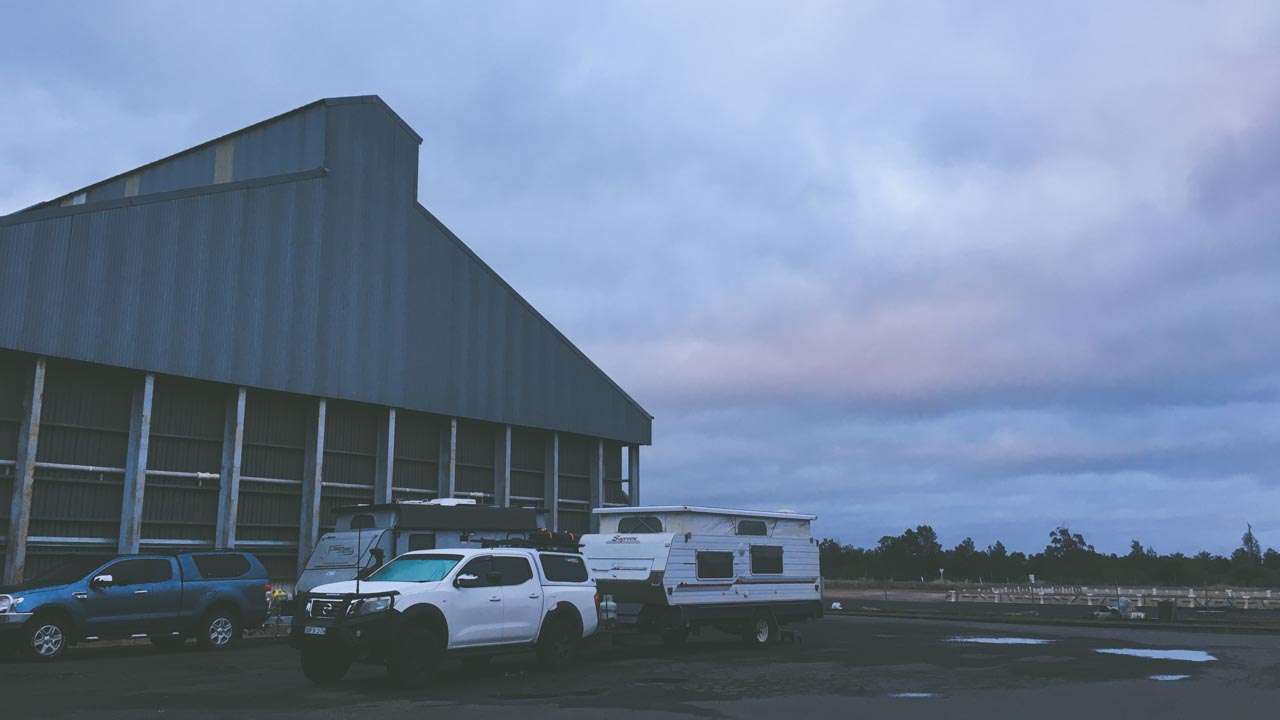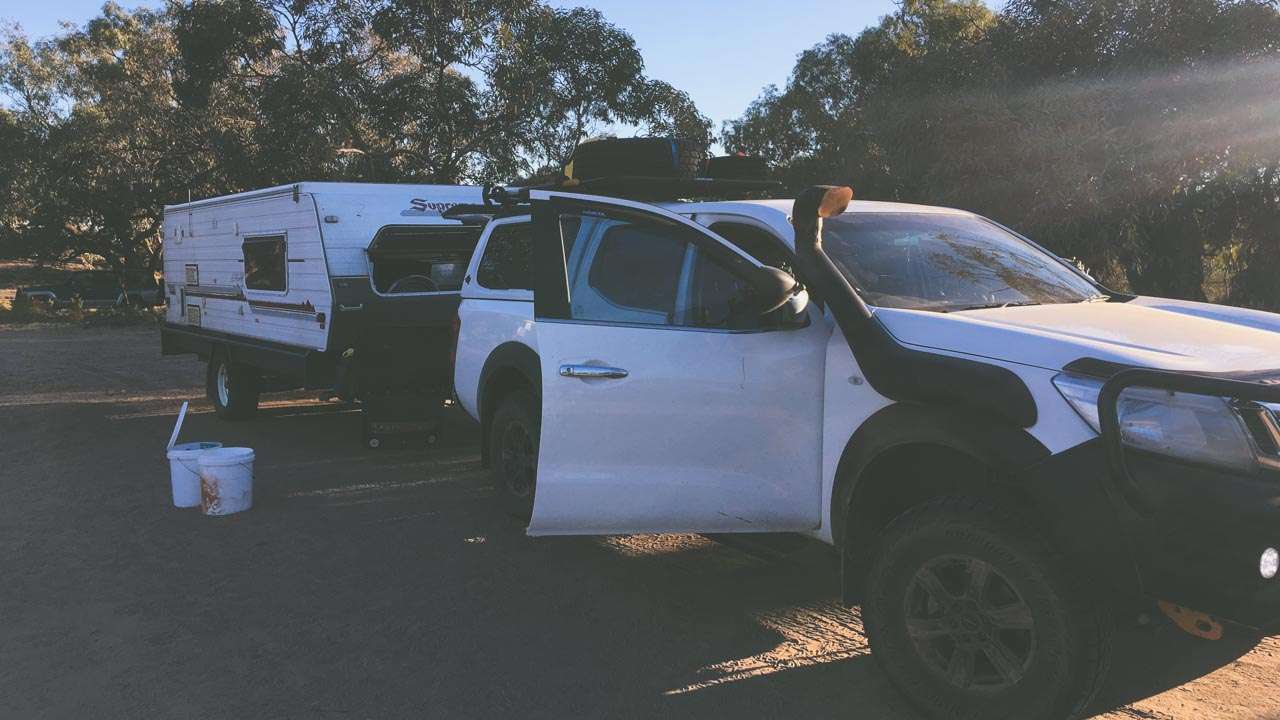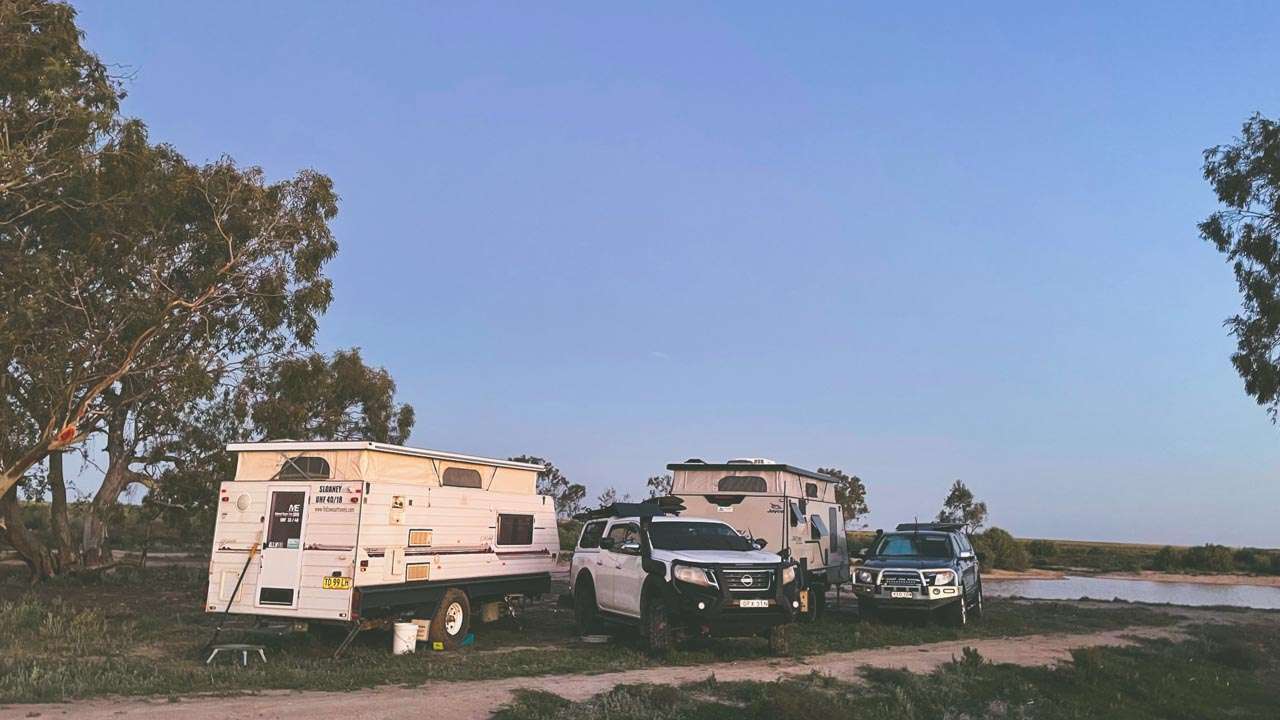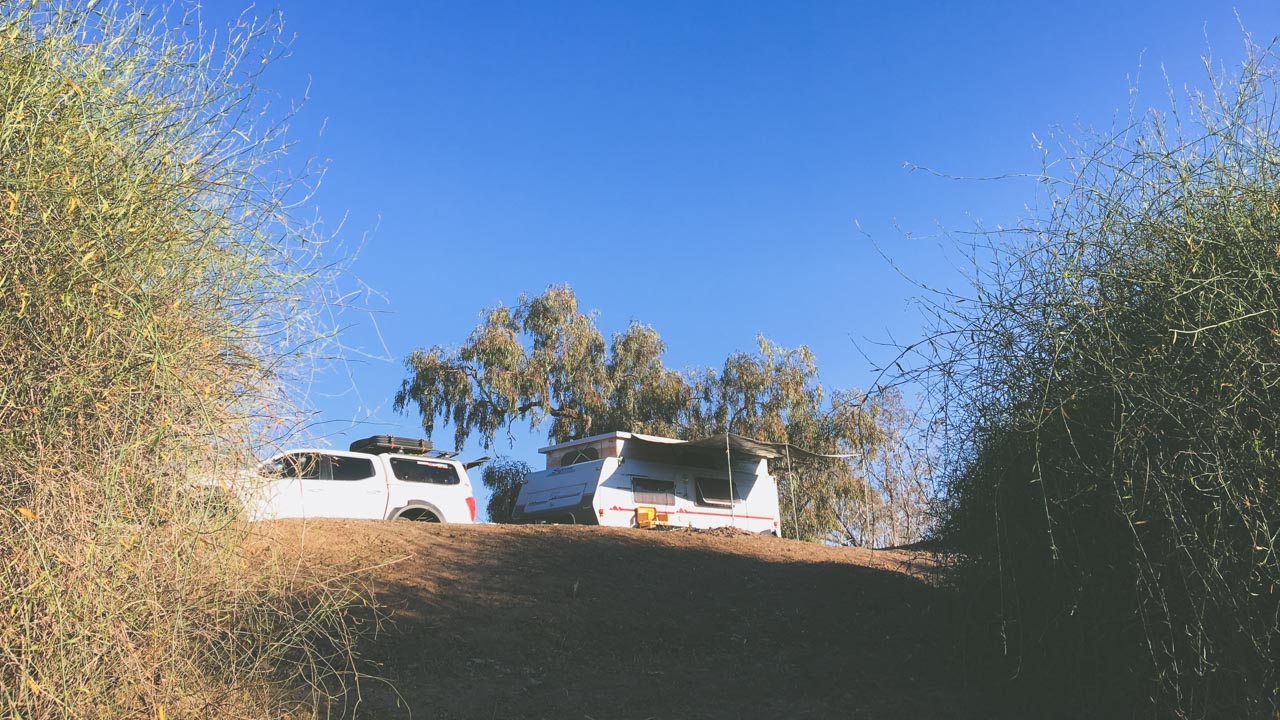Free Camping In Australia – A Beginners Guide
In this blog post, we’ll explore what free camping in Australia is, where you can do it, and how to do it responsibly. Australia is a beautiful country, with stunning landscapes and unique wildlife that attract tourists from all over the world. Many travellers choose to explore the vast Australian wilderness by camping, and luckily, there are plenty of free camping options available.

Free Camping In Our Camper Trailer
What is Free Camping?
Free camping, also known as freedom camping, boondocking or off-grid camping, is the act of setting up camp in a location without paying any fees. Unlike traditional campgrounds, free camping sites don’t have any amenities like electricity, water, or showers, and may not have designated campsites or fire pits. However, they offer a more natural camping experience, allowing you to truly connect with the environment around you.

Free Camping Behind Grain Silos At Merriwagga
Is Free Camping Legal in Australia?
Free camping is legal in Australia, but it’s important to be aware of the rules and regulations that apply to camping in different areas. Each state and territory has its own set of laws and guidelines regarding camping, so it’s important to do your research before setting up camp.
In general, it’s illegal to camp on private property without permission, and it’s also illegal to camp in some national parks and conservation areas. However, many other areas allow free camping, including rest areas, roadside stops, and some public lands.

Free Camping At Menindee
Where Can You Free Camp in Australia?
There are plenty of options for free camping in Australia, ranging from beachside campsites to remote wilderness locations. Here are some of the most popular spots for free camping:

Free Camping At One Tree Hotel On The Cobb Highway
Rest Areas and Roadside Stops
Many rest areas and roadside stops across Australia allow free camping for short periods of time. These areas are typically equipped with basic facilities like toilets and picnic tables, but don’t offer any other amenities.
National Parks and Conservation Areas
While it’s illegal to camp in some national parks and conservation areas, there are many others that allow free camping. These areas usually have designated camping areas and offer basic facilities like toilets and fire pits.
Beachside Campsites
Australia has some of the most beautiful beaches in the world, and many of them allow free camping. These campsites are usually located on the beach or just a short walk away and offer stunning views and easy access to the water.

Free Camping At Tri State Rest Area At Nyngan
Public Land
Some public land, such as state forests and recreation areas, allow free camping. These areas usually have designated campsites and basic facilities like toilets and fire pits.
Private Property
While it’s illegal to camp on private property without permission, some landowners allow free camping on their land. You can find these opportunities through online platforms like Hipcamp or by contacting landowners directly.
Tips for Free Camping
Free camping in Australia can be a wonderful experience, but it’s important to do it responsibly to minimise your impact on the environment and ensure that others can enjoy these areas in the future. Here are some tips for free camping in Australia:
Research Your Destination
Before you set off on your camping trip, research the area you’ll be camping in to find out about any restrictions, regulations, or permits required. Make sure you know the rules around campfires, littering, and waste disposal, and follow them closely.

Free Camping In A Gravel Pit Outside Of Broken Hill
Pack Responsibly
When you’re camping in a free camping area, you won’t have access to amenities like running water or electricity. Make sure you pack enough food, water, and supplies for your entire trip, and bring a portable water filter or purification tablets to make sure you have access to clean drinking water.
Leave No Trace
When you’re camping in a free camping area, it’s important to leave no trace of your visit. This means packing out all your trash, burying human waste at least 100 metres from water.

Free Camping On Cooper Creek At The Dig Tree
What Do I Need To Free Camp?
To go free camping in Australia, there are several things you need to consider and prepare for:
A Suitable Camping Spot
In Australia, you can’t just set up camp anywhere. You need to find a designated free camping spot or a legal rest area where camping is allowed. Many of these sites can be found on government websites or camping apps such as WikiCamps.
A Good Quality Tent, Camper Trailer, Caravan or Motor Home
You will need a reliable and sturdy tent, camper trailer, caravan or motor home that can withstand the weather conditions and provide you with shelter and comfort. It doesn’t have to be the latest or greatest, it doesn’t even have to be offroad capable. It does however need to be in good condition and capable of getting in to the area you want to camp.
Sleeping Gear
You will need a good quality sleeping bag and mattress or air mattress to ensure you get a comfortable night’s sleep. If you are using a camper trailer, caravan or motor home you just need to make sure your bedding is comfortable and suitable for the weather conditions you expect to encounter. For example in cold weather you will need a suitably warm quilt.
Cooking Equipment
You will need cooking equipment such as a portable stove, fuel, and utensils to prepare your meals. If you are just starting out a simple butane cartridge stove, a frying pan and a pot is all you need.
Water & Food
You will need to bring enough water and food for the duration of your stay. It’s important to keep in mind that some free camping sites do not have access to clean drinking water or nearby stores. Usually water storage capacity will be the limiting factor that determines how long you can camp in one spot for without having to go and refill.

Free Camping On The Darling River At Louth
Proper Clothing
Depending on the time of year and location you will need appropriate clothing for the weather conditions.
Personal Hygiene Items
You will need to bring personal hygiene items such as toilet paper, soap, and a towel.
Knowledge Of The Local Rules And Regulations
Before setting up camp, you should be aware of any rules and regulations for the free camping spot you have chosen. This includes knowing where you can and cannot camp, the length of stay permitted, and any other restrictions or requirements.
Leave No Trace Principles
It’s important to respect the environment and leave the campsite as you found it. This includes packing out all trash and not disturbing the local flora and fauna.
By properly preparing and following the rules and regulations, you can enjoy a safe and enjoyable free camping experience in Australia.
Is It Safe To Free Camp In Australia
Camping in Australia can be safe if you take the necessary precautions and follow some basic guidelines. However, it’s important to keep in mind that there are certain risks associated with camping, such as exposure to the elements, wildlife encounters, and camping in remote areas without access to emergency services.
Here are some tips to help you stay safe while camping in Australia:
Research Your Destination
Before you set out to camp, research your destination to understand the terrain, climate, and any potential risks or hazards. For example if you are taking your dog along with you as so many people do then it is a good idea to check if there are any 1080 baiting programs underway in the area you are visiting.
Check The Weather
Be sure to check the weather forecast before you set out on your camping trip. Australia is known for its extreme weather conditions, so it’s important to be prepared for all possibilities. For example things get cold and nasty even potentially life threatening in Auatralias Alpine Regions.
Choose A Safe Campsite
When choosing a campsite, look for a location that is well-lit, has easy access to emergency services, and is away from any potential hazards like steep cliffs or bodies of water.

Free Camping On The Murrumbidgee River At Carrathool
Pack Appropriately
Make sure you have appropriate camping gear. At a minimum this will include a sturdy tent or swag. A sleeping bag, and appropriate clothing for the weather conditions. It’s also important to bring enough food and water for your trip.
Be Aware Of Wildlife
I’m not talking about dropbears as they are a completely different kettle of hurt. Or am I? Anyways Australia is home to a variety of wildlife some of which can be dangerous. Be sure to research the types of animals that may be in the area and take appropriate precautions. Storing food properly and keeping a safe distance from animals are good options.
Practice Fire Safety
If you plan to have a campfire, be sure to follow fire safety guidelines and only build fires in designated areas.
Let Someone Know Your Plans
Before you head out on your camping trip, let someone know your plans, including where you’ll be camping and when you plan to return.
By following these tips and taking the necessary precautions, you can safely enjoy the great outdoors while camping in Australia.
